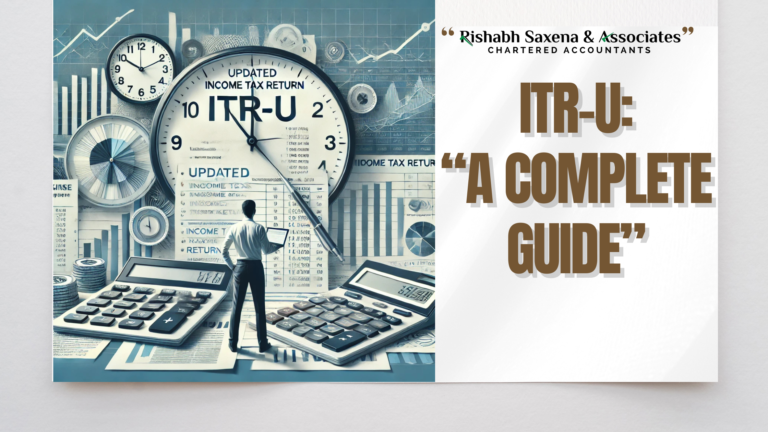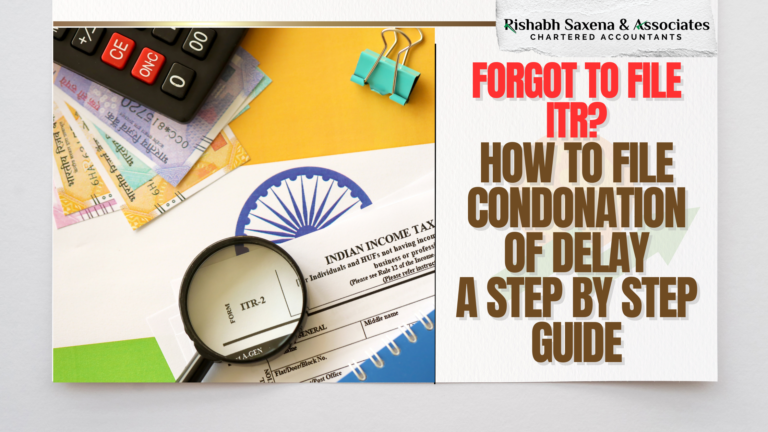Indexation Benefits Rolled Back: Implications for Property Owners

Introduction:
Indexation benefits have long been a cornerstone of the Indian tax system, offering property owners a method to adjust the purchase price of their assets for inflation and thus reduce their taxable gains. The recent Union Budget 2024-25, however, has brought significant changes by removing these benefits for properties purchased from 2001 onwards. This blog explores the history of indexation benefits, the rationale behind their removal, and the potential impact on property owners.
The History of Indexation Benefits:
What Are Indexation Benefits?
Indexation is a method that adjusts the purchase price of an asset to account for inflation over time. This adjusted price is then used to calculate capital gains, which is the profit made from selling the asset. By factoring in inflation, indexation allows property owners to determine the property’s value more accurately, thereby reducing their taxable gains.
The Cost Inflation Index (CII)
The government publishes the Cost Inflation Index (CII) each year to measure the rise in prices relative to the base year (2001-2002). To calculate the inflation-adjusted purchase price when selling an asset, you multiply the original purchase price by the CII of the sale year and divide it by the CII of the purchase year. This gives the adjusted purchase price, reflecting inflation.
Benefits of Indexation
- Reduced Taxable Gains: By adjusting the purchase price for inflation, property sellers could significantly reduce their taxable capital gains.
- Encouragement for Long-Term Investment: Indexation benefits encouraged property owners to hold onto their assets for longer periods, contributing to stability in the real estate market.
The Removal of Indexation Benefits in the Budget 2024
The New Tax Rule
The Union Budget 2024-25 has introduced a crucial change:
- LTCG Tax Rate: The long-term capital gains (LTCG) tax rate for properties purchased from 2001 onwards has been set at 12.5%.
- Removal of Indexation Benefits: The benefit of indexation has been removed, meaning property sellers will now pay taxes on the entire capital gain without adjusting for inflation.
Rationale Behind the Change
The government aims to simplify the taxation process and make it more straight forward. The removal of indexation benefits is part of a broader strategy to streamline tax calculations and close loopholes that previously allowed significant tax savings for property owners.
Impact on the Real Estate Sector:
- Increased Tax Liability for Investors: Without the cushion of indexation, investors will face higher tax liabilities on their capital gains. This could dampen enthusiasm for real estate investments, as the after-tax returns will effectively be lower.
To understand this better let’s take help of an example:
| Example Calculation | Old System with Indexation | New System without Indexation |
| Purchase Price (2001) | ₹50,00,000 | ₹50,00,000 |
| Sale Price (2024) | ₹1,50,00,000 | ₹1,50,00,000 |
| CII (2001) | 100 | – |
| CII (2024) | 348 | – |
| Indexed Purchase Price | ₹50,00,000 × (348/100) = ₹1,74,00,000 | – |
| Capital Gains | ₹1,50,00,000 – ₹1,74,00,000 = -₹24,00,000 | ₹1,50,00,000 – ₹50,00,000 = ₹1,00,00,000 |
| LTCG Tax Rate | No tax (no gain) | 12.5% |
| LTCG Tax | – | ₹1,00,00,000 × 12.5% = ₹12,50,000 |
Impact on Property Owners:
- Old System with Indexation:
- The indexed purchase price adjusts for inflation, often resulting in lower or no taxable capital gains.
- In the example, the indexed purchase price (₹1,74,00,000) exceeded the sale price (₹1,50,00,000), leading to no taxable gain and hence no tax liability.
- New System without Indexation:
- The purchase price is used without inflation adjustment, resulting in higher taxable capital gains.
- In the example, the capital gain is ₹1,00,00,000, leading to a significant tax liability of ₹12,50,000.
2. Shift in Investment Strategies: With higher taxes on long-term gains, investors might shift towards shorter holding periods or seek alternative investment avenues with more favorable tax treatments. This could lead to increased market volatility and a potential decline in long-term real estate investments.
3. Market Dynamics and Pricing Pressure: Developers might experience a slowdown in sales as investors reassess their portfolios. This could result in increased inventory and potential price corrections, particularly in markets already experiencing slow growth.
4. Impact on Real Estate Funds and REITs: Real Estate Investment Trusts (REITs) and real estate funds, which often attract investors due to favorable tax treatments, might see a decline in popularity. The rollback of indexation could lead to a reevaluation of these investment vehicles.
5. Long-Term Implications: In the long run, the removal of indexation benefits might lead to a more transparent and simplified tax regime. However, the immediate impact is likely to be negative, with reduced investment inflows and potential stress on market prices.
Increased Tax Burden
Without the indexation benefit, sellers will now pay taxes on the entire capital gain, calculated as the difference between the sale price and the original purchase price without any adjustment for inflation. This change is likely to increase the tax burden on property sellers, as they will have to pay taxes on a higher gain amount.
Ways to Mitigate the Impact:
1. Diversification of Investment Portfolio
Diversifying Across Asset Classes:
- Investors should consider diversifying their portfolios to include a mix of real estate, equities, bonds, and alternative investments. This approach helps in balancing the risk and returns, ensuring that the impact of higher taxes on real estate gains is mitigated by potentially higher returns in other asset classes.
Geographical Diversification:
Investing in different geographic locations can reduce risk. Different regions may experience varying levels of growth and stability, helping to balance the overall investment portfolio.
2. Tax-Efficient Investment Planning
Exploring Other Tax-Saving Instruments:
Investors can look into other tax-efficient investment options such as Public Provident Fund (PPF), National Savings Certificates (NSC), and Equity-Linked Savings Schemes (ELSS). These instruments offer tax benefits and can help in optimizing overall tax liability.
Utilizing Section 54 and Section 54EC:
Investors can still leverage provisions under Section 54 and Section 54EC of the Income Tax Act, which provide exemptions on capital gains if the amount is reinvested in specified assets like residential property or bonds issued by NHAI and REC.
Re-evaluating Holding Periods:
Reassessing the holding period for investments can also be beneficial. In some cases, short-term trading might become more favorable compared to long-term holdings, depending on the tax implications and market conditions.
3. Enhanced Market Research and Strategic Investments
Staying Informed:
Keeping abreast of market trends, regulatory changes, and economic indicators is crucial. Investors should regularly follow updates from reliable sources, attend webinars, and consult with financial advisors to make informed decisions.
Investing in High-Growth Areas:
Focusing on high-growth areas with potential for substantial appreciation can offset the impact of higher taxes. Emerging markets, infrastructural development zones, and urban expansions are some areas to consider.
4. Leveraging Real Estate Technology and Innovation
PropTech Solutions:
Utilizing property technology (PropTech) can enhance investment efficiency. Tools for property management, market analysis, and investment tracking can help in making data-driven decisions and optimizing returns.
Sustainable Investments:
Investing in sustainable and green buildings can also provide long-term benefits. These properties often have lower operational costs and can attract a premium from environmentally-conscious buyers and tenants.
5. Seeking Professional Advice
Consulting Financial Advisors:
Engaging with financial and tax advisors can provide personalized strategies to mitigate the impact of the rollback. Advisors can offer insights into structuring investments in the most tax-efficient manner and suggest alternative investment opportunities.
Legal Structuring:
Proper legal structuring of investments, such as setting up trusts or other legal entities, can provide additional tax advantages and protect assets effectively.
Conclusion:
The rollback of the indexation benefit marks a significant shift in the taxation of real estate investments. While the move is aimed at increasing tax revenues, it also introduces new challenges for the sector. Investors and developers will need to adapt to this new reality, potentially reshaping their strategies to maintain profitability and growth. As the market adjusts, it will be crucial to stay informed and agile to navigate the evolving landscape.








